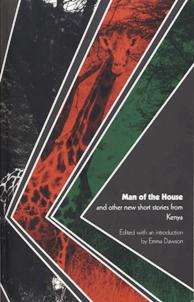Next Journalism [Search results for nigeria literature]
Call for Papers: Women in Literature and Films in Northern Nigeria
Call for Entries: Nigeria Prize for Literature 2011

The $4,000 Ibadan Literature Prize Competition
Job Opening: Associate Professor/ Reader (Francophone and African Literature) for Nigeria French Language Village
Diversity is Positive for Nigeria Essay/Short Story Contest
Call for Submissions - Sentinel Nigeria: Online Magazine of Contemporary Nigerian Writing
Call for Applicants: ASAUK Writing Workshop for African Scholars (venue: Nigeria)
Call for Scholars of Gambian Literature - 21 Notes of Kora: Emerging Perspectives on the Writings of Tijan Sallah
Shortlisted Books for The Commonwealth Writers' Prize Announced
ACLS African Humanities Program
Abuja Literary Society Book Jam Featuring Poet Chike Ofili at Silverbird (Nigeria)
25 Writing Opportunities for African Writers with March 31 Deadline
Garden City Literary Festival (Port Harcourt, Nigeria) Opens December 8
New Book: Man of the House and other New Short Stories from Kenya

Call for Entries: 2011 Association of Nigerian Authors Literary Prizes
Call for Submissions - Issue 6 of Sentinel Nigeria: Online Magazine of Contemporary Nigerian Writing
Write Africa Online Writers Workshop with Abi Adegboye
13 Writing Opportunities for African Writers with March 1 Deadline
Poetry Reading Session with Musa Idris Okpanachi at the French Cultural Centre, Nigeria
Abuja Writers’ Forum’s Guest Writer Session Presents Sumaila Umaisha and Ifeyinwa Omalicha
